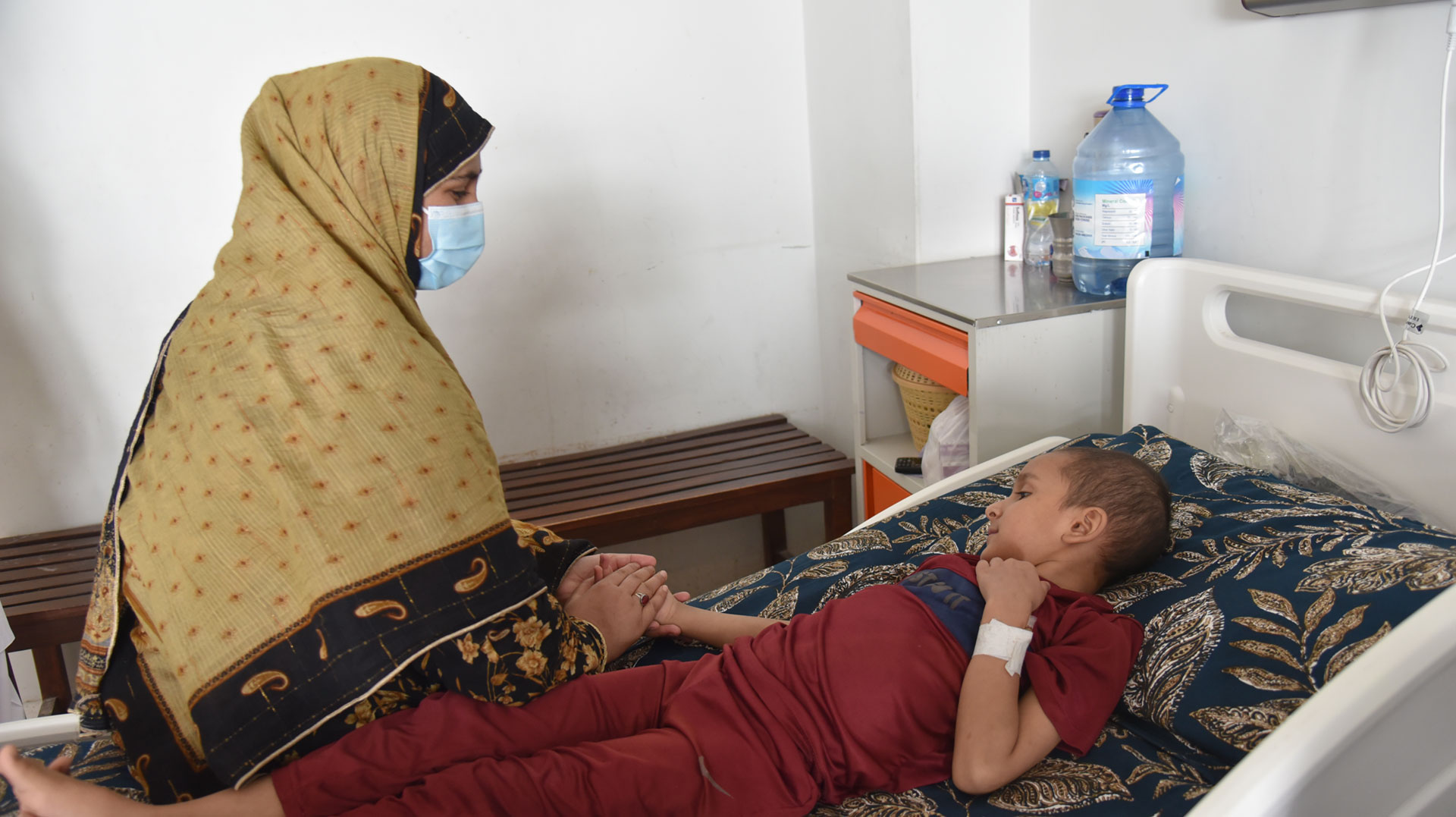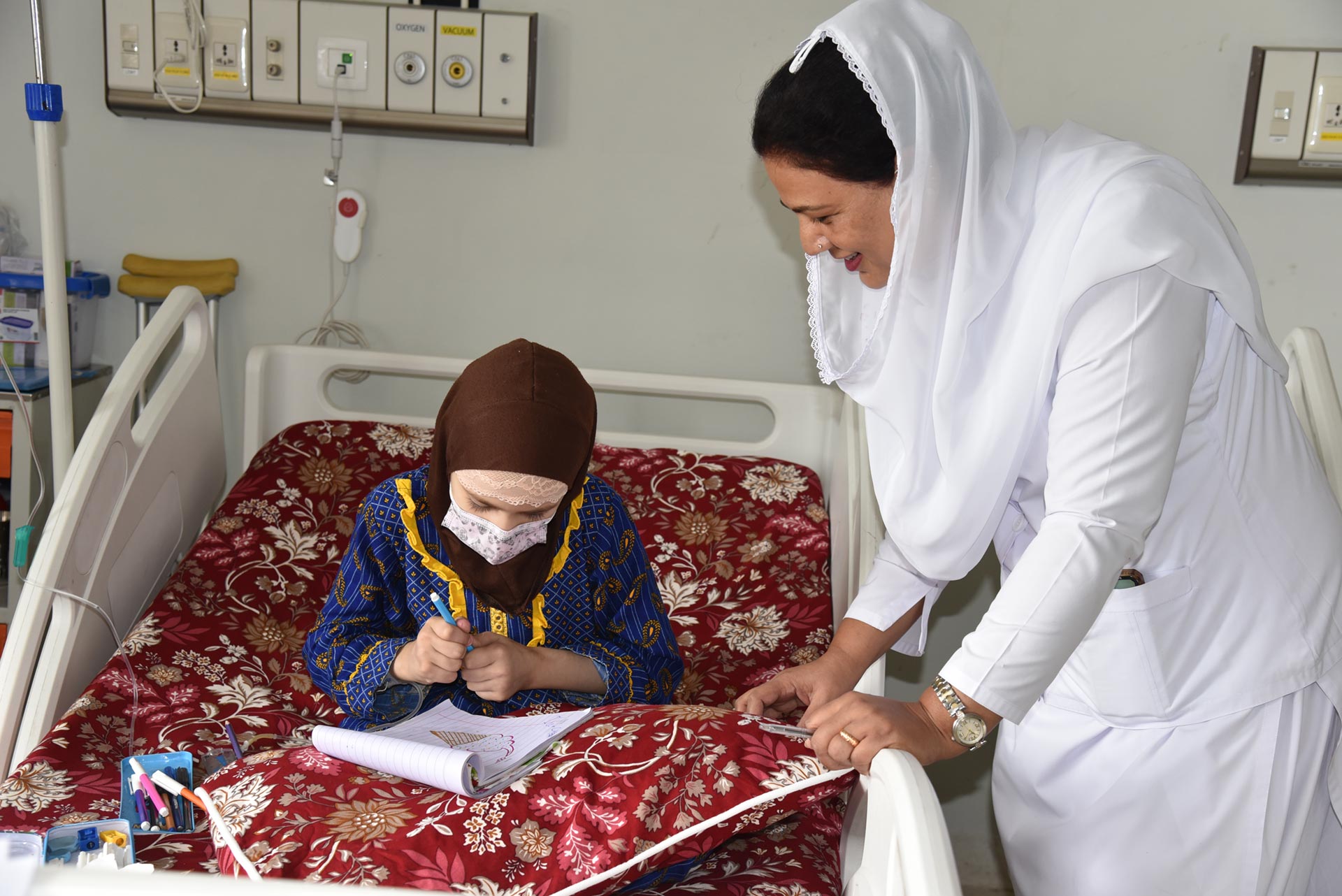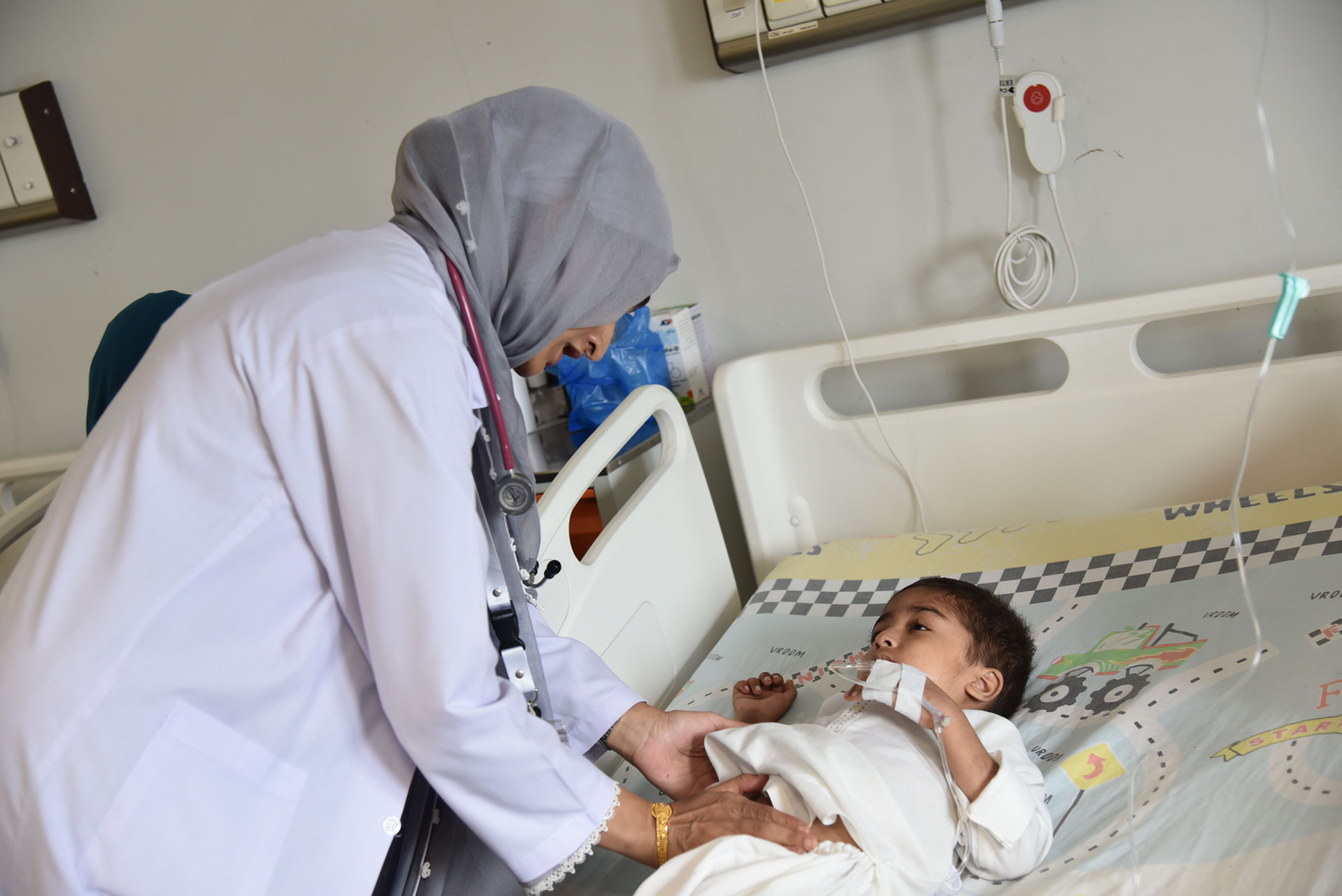The partnership between WHO and the Ministry of Health to address childhood cancer plays a crucial role in combating noncommunicable diseases which account for 53% of all deaths in the country
 Hasnain, a cancer patient, with his mother at the Pakistan Institute of Medical Sciences, Islamabad. Photo credit: Sara Akmal/WHO Pakistan
Hasnain, a cancer patient, with his mother at the Pakistan Institute of Medical Sciences, Islamabad. Photo credit: Sara Akmal/WHO Pakistan
28 September 2025, Islamabad, Pakistan – “I want to be cured and go home,” says Hasnain, a cancer patient undergoing treatment at the Pakistan Institute of Medical Sciences (PIMS). Over the last 2 decades, around 18 000 paediatric cancer patients from the Islamabad Capital Territory, Pakistan-administered Kashmir and Khyber Pakhtunkhwa province have been treated at PIMS.
In Pakistan, between 8000 and 10 000 children are diagnosed each year with cancer. Limited access to treatment is one of the primary factors contributing to the country's low survival rate for childhood cancer – 30% according to estimates – compared to a survival rate of 80% in higher-income countries.
Childhood cancer is one of the noncommunicable diseases severely affecting public health in Pakistan. NCDs, the world’s leading killers, account for nearly 75% of all global deaths. In Pakistan, these diseases cause 53% of all deaths, driven by rising burdens of cardiovascular diseases, diabetes, cancers, and chronic respiratory conditions, compounded by lifestyle and environmental risk factors.
“I want to recover soon so that I can go back to school and complete my education,” says Amina Bibi, a 12-year-old girl battling blood cancer for the past 8 months who has been under treatment at PIMS. Her dream, like Hasnain's, is of a future free from intravenous drips and hospital corridors.
In July 2025, Pakistan signed an agreement with WHO to become the second country in the Eastern Mediterranean Region to join the Global Platform for Access to Childhood Cancer Medicines (Global Platform).
 Rakhil (nurse) caring for patients at the Pakistan Institute of Medical Sciences, Islamabad. Photo credit: Sara Akmal/WHO Pakistan
Rakhil (nurse) caring for patients at the Pakistan Institute of Medical Sciences, Islamabad. Photo credit: Sara Akmal/WHO Pakistan
The initiative was co-founded in 2021 by St. Jude Children’s Research Hospital and WHO to provide an uninterrupted supply of certified cancer medicines to low- and middle-income countries. The goal is that by 2026 these medicines will be available across 7 health care facilities in Pakistan. WHO and St. Jude are working in collaboration with the Ministry of National Health Services, Regulations and Coordination, and the United Nations Children's Fund (UNICEF), which will be responsible for procuring quality-assured medicines and delivering them to Pakistan.
As she moves through the ward adjusting drips, taking care of hygiene and guiding new staff members, Rakhil, head nurse at the paediatric oncology unit at PIMS, explains that these medicines will bring new hope to thousands of families. "It's hard for parents to afford chemotherapy medicines; free cancer medicines will be beneficial for these families”, she says.
Beyond the vital provision of medicines, WHO will continue to support Pakistan’s Ministry of Health and provincial authorities with technical guidance, resources and operational support to systematically fight childhood cancer.
 Dr Hijab making a round of the paediatric oncology ward at the Pakistan Institute of Medical Sciences, Islamabad. Photo credit: Sara Akmal/WHO Pakistan
Dr Hijab making a round of the paediatric oncology ward at the Pakistan Institute of Medical Sciences, Islamabad. Photo credit: Sara Akmal/WHO Pakistan
"Last year, out of 104 patients, 61% abandoned their treatment due to financial hardship," explains Dr Hijab, paediatric oncologist at PIMS. In too many cases, parents were forced to make an impossible choice between their child's life and their family's survival.
“No child affected by cancer should die because of lack of access to treatment, including quality-assured medicines. WHO will work side by side with the Ministry of Health and partners to save lives and leave no child behind, no matter where they live or who they are,” said WHO Representative in Pakistan Dr Dapeng Luo
Pakistan’s participation in the Global Platform carries the promise of a future where more children will not only dream of going home and back to school but will have a chance at a healthy and hopeful future.
Written by Sara Akmal in collaboration with the NCD team and Women & Childhood Cancers team at WCO Pakistan.
Edited by José Ignacio Martín Galán.








